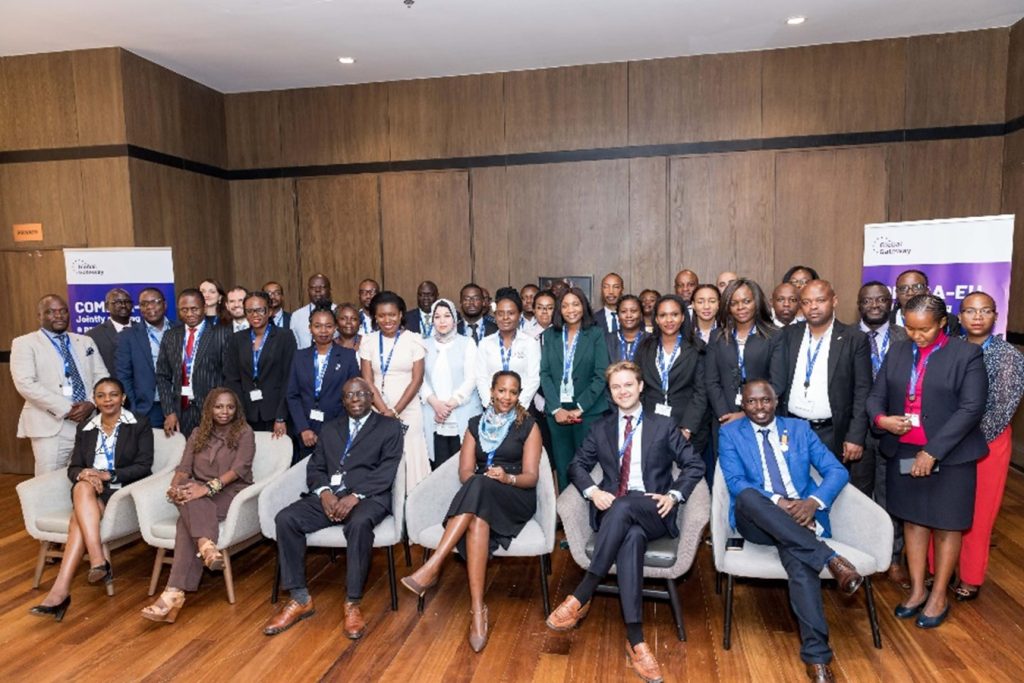
The Common Market for Eastern and Southern Africa (COMESA) has taken a significant stride toward digital transformation with the successful conclusion of a three-day technical scoping workshop for the Safe Digital Boost for Africa (SDBA) Programme.
The workshop, held from 4 – 6March 2025 in Nairobi, Kenya, brought together key stakeholders to chart a course for digital advancement across the region.
Funded by the European Union (EU) under the Neighbourhood, Development and International Cooperation Instrument (NDICI), the SDBA Programme aims to revolutionise trade, digitalisation, and cybersecurity across Africa. The COMESA component will build on the achievements of the Digital Financial Inclusion (DFI) programme, with a renewed focus on facilitating eCommerce and advancing ePayments systems.
The program will directly extend ongoing efforts to harmonise legal and technical standards, enhance digital infrastructure, and support deployment of the COMESA Digital Retail Payment Platform across eight pilot countries: Zambia, Malawi, Kenya, Uganda, Rwanda, Ethiopia, Egypt, and Mauritius.
The Digital for Development (D4D) Hub facilitated the event, which featured robust participation from COMESA Ministries of Trade, public and private sector representatives, including Mobile Network Operators (MNOs), commercial banks, central banks, and FinTech companies.
Mr. Alfred K’ombudo, the Principal Secretary of Kenya’s State Department for Trade within the Ministry of Investments, Trade and Industry, officially opened the workshop, emphasizing Kenya’s commitment to digital transformation.
“I wish to emphasise the importance of the Safe Digital Boost for Africa Programme which complements efforts by the Kenya Government to expand digital and physical infrastructure to enable citizens experience benefits from government services and participate in structured trading,” he stated.
Ms. Mshuka Kamwela, Programme Manager for COMESA-European Development Fund (EDF), highlighted that the workshop marked the first step following the signing of the €10 million Financing Agreement between COMESA and the European Union.
“This investment goes beyond financial support – it represents a transformative shift in how businesses and individuals conduct cross-border transactions,” she noted.
Ms. Christiane Haziyo, Programme Manager for Regional Cooperation and Trade Facilitation at the EU Delegation to Zambia and COMESA, reaffirmed the EU’s commitment to the initiative.
“With this programme, we are delivering on the EU flagship Global Gateway aiming to connect goods, people, and services around the world in a sustainable way,” she said.
The outcomes of the workshop were several strategic recommendations on key multiple focus areas including on Legal Framework and Regulation, Technical Integration and Infrastructure, Financial Inclusion and Market Development, and on Consumer Protection and Trust
The significance of these initiatives for the region’s economies cannot be overstated. For instance, Micro, Small, and Medium Enterprises (MSMEs) contribute an estimated 50% to 70% of the Gross Domestic Product (GDP) and account for 50% to 60% of employment opportunities in the COMESA region, enhancing digital financial inclusion imperative for economic development.
Following the workshop, COMESA Secretariat and the European Union Delegation to Zambia and COMESA will work with stakeholders to develop a comprehensive implementation plan based on the recommendations.

